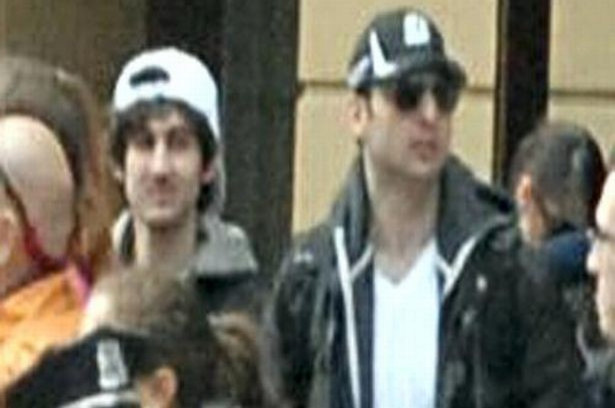Who Is The Fourth Person Connected To The Boston Marathon Bombing? Khairullozhon Matanov's Story In 5 Parts

A fourth person was indicted in relation to the 2013 Boston Marathon bombing on Friday.
Khairullozhon Matanov, 23, was allegedly an acquaintance of Dzhokhar A. Tsarnaev, the man accused of orchestrating and carrying out the bombing. According to the indictment, Matanov met “Tamerlan Tsarnaev and became friends with him.” He was indicted on three counts of “making a materially false, fictitious, and fraudulent statement in an Investigation Involving International and Domestic Terrorism,” and one count of destroying evidence.
Matanov "took a series of steps to impede the FBI's investigation into the extent of his friendship, contact and communication with the suspected bombers, and the fact that he shared the suspected bombers' philosophical justification for violence," according to a press release from the U.S. attorney's office in Boston.
PHOTO: Khairullozhon Matanov STORY: http://t.co/8NTtUn6u3T pic.twitter.com/2SK6syL1Xc
— AndreaWBZ (@AndreaWBZ) May 30, 2014But who is Matanov? We read the whole indictment (so you don’t have to) and broke his story into five parts.
His background:
He’s a citizen of Kyrgyzstan and legally came to the U.S. in 2010. Since then, he worked at various jobs, including driving a taxi. He told the court he went to law school back home. "I tried to get into college here, but there were some issues," he said.
Relation to the Tsarnaev brothers:
While in the U.S., he became friends with Tamerlan Tsarnaev, and according to the indictment, he “participated in a variety of activities with Tamerlan Tsarnaev, including discussing religious topics and hiking up a New Hampshire mountain in order to train like, and praise, the ‘mujahideen.’”
After the bombing, he saw the brothers in person at least twice. He went out to dinner with the brothers the night of the bombing, and he paid for the meal, according to the indictment. He called them both several times in the following days, including after the brother’s photos had been published, although his calls to Dzhokhar never connected.
Support for the bombing:
In the hours and days after the bombing, Witness I, whose name is known only to the Grand Jury, said Matanov told him or her that he would support the bombing if it “had a just reason, such as being done in the name of Islam.” Later, “he expressed sympathy for the victims’ families, although he continued to explain away the significance of the victims’ deaths on the ground that everyone must eventually die.”
Hindering investigation:
A third witness, whose name is known only to the Grand Jury, claims Matanov asked him or her to hide cellphones for him, in case the FBI searched his house. After Witness III refused, Matanov went to the Braintree Police Station to tell authorities he knew the Tsarnaev brothers. During his interview with a detective, the indictment claims he gave “information that he intended to be false and misleading.” He also allegedly lied about how he knew Tamerlan, telling police it was only through their common place of worship and through soccer that they were acquaintances. In fact, the indictment alleges, Matanov met Tamerlan's wife and child. After the interview, he deleted several items from his computer, some of which “contained violent content or calls to violence,” and his search history after the bombing. However, the FBI was able to recover much of the deleted content.
False statements:
The indictment details the first conversation Matanov had with the FBI, in which he denied driving the brothers to dinner and remembering what they said regarding the bombing. Later, the FBI found out that in Matanov’s first call to Tamerlan after the bombing, they chatted about the attack, and Tamerlan had said he didn’t think that al-Qaeda was behind it, because the group usually issues a statement claiming responsibility for its attacks. The indictment also alleges he lied about the contents of his computer and whether or not he discussed his suspicions about the brothers' involvement with anyone.
What’s next for Matanov:
Matanov did not enter a plea during his indictment on Friday. His lawyer, Edward Hayden, told the Wall Street Journal that "there's a lot of unsubstantiated allegations."
Each of his four counts could result in a maximum of three years of supervised release and a fine of $250,000. If he is found guilty of destroying evidence, he could face up to 20 years in prison and eight years for each false statement he gave the FBI. A detention hearing for Matanov is set for June 4.
Read the full indictment here.
© Copyright IBTimes 2024. All rights reserved.





















